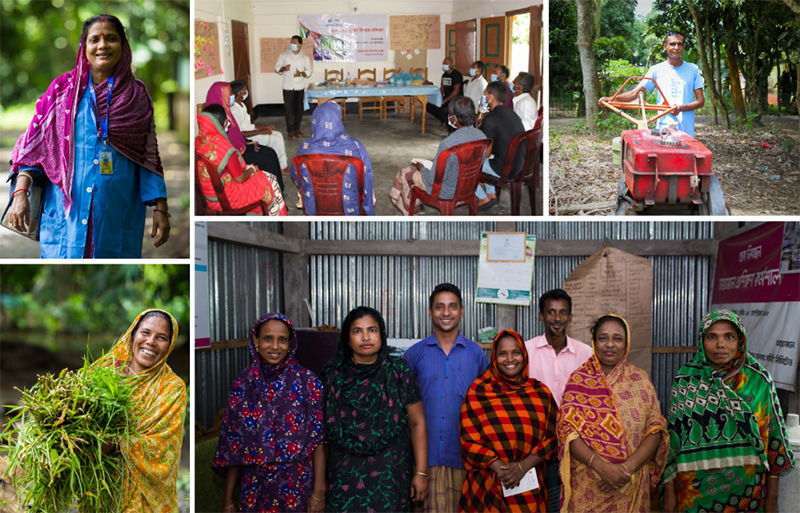economic development
jibika
Launched in 2015 and implemented by BRAC, the Jibika project under the Bangladesh Partnership Initiative (BPI) was designed to promote entrepreneurship for sustainable income growth of poor and marginalized farming households around the Chevron-operated gas fields. Phase I of this project successfully modified Village Development Organizations (VDO), which later received registration from the Department of Cooperatives. BRAC and its implementing partner, Institute of Development Affairs (IDEA), have also facilitated intensive community trainings on leadership, funds management, cattle rearing, vegetable gardening, development of value-chains and local service providers, and more. Between 2015 and 2022, approximately 22,500 people have benefitted from the Jibika project.
Following the successful completion of Phase I, the second phase is designed to further strengthen the governance and management of the Jibika cooperatives and help them achieve long-term sustainability by 2022. The total membership of Jibika cooperatives (VDOs) now stands at 4,231 members. Approximately 58 percent of the VDO members are women while 55 percent of the executive committees are led by women. In Jibika Phase II thus far, capacity development trainings have been held on fund management, business planning, leadership and accounts management.
In response to the Covid19 pandemic, a range of livelihood support items have been distributed amongst 104 VDOs, e.g., rickshaw/van, rice thresher, power sprayer, power tiller. All VDOs were also provided with handwashing booths and infrared thermometers. Moreover, behavior change communication materials, e.g., leaflets and stickers depicting handwashing illustrations and conveying awareness messages were distributed to cover approximately 3,465 households.
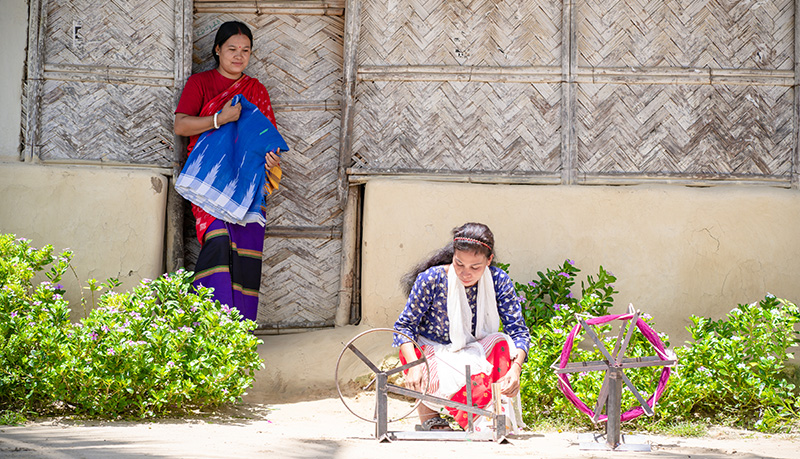
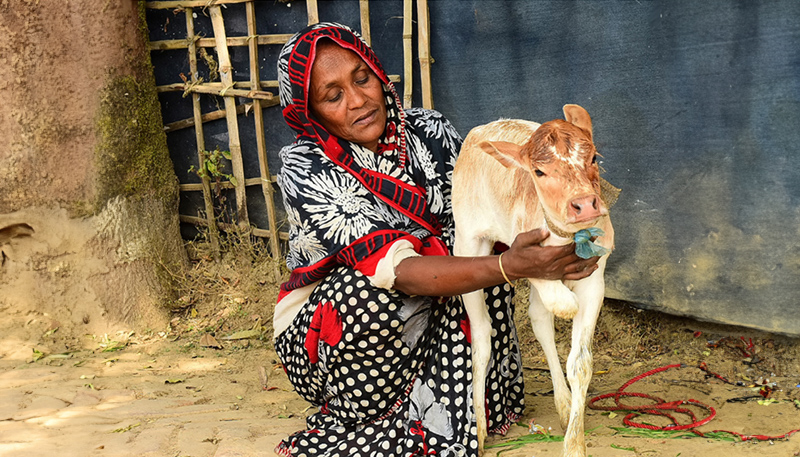
"Even a few years ago, I was completely dependent on my husband and didn't know how to survive. Our income couldn't keep pace with our increasing needs. Now i know what I'm capable of. With my VDO behind me and my family's rock solid support, the possibilities are endless"
-Henna (VDO Co-operative Member)
110
village groups completed registration as cooperatives
55 percent
women in cooperative leadership roles
22,500
community members benefitted
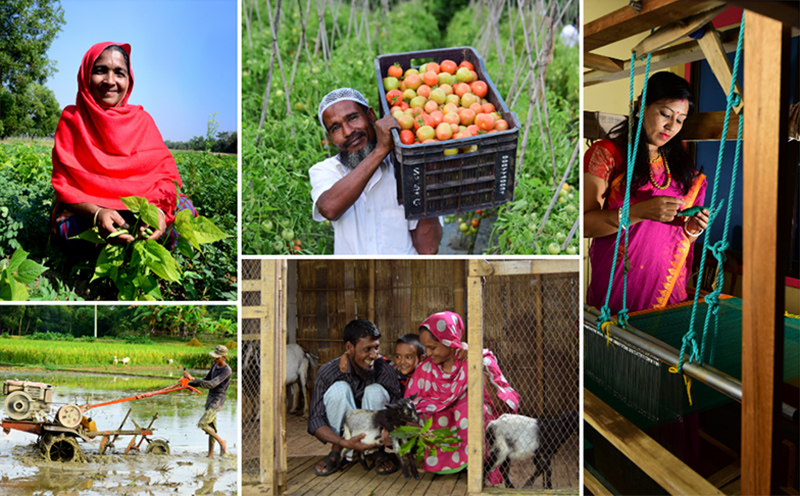
uttoron
In 2015, Chevron signed a Memorandum of Understanding (MoU) with the Asian Development Bank (ADB). Under the umbrella of the government of Bangladesh’s Skills for Employment Investment Program, sponsored by ADB and administered by the Ministry of Finance, the aim of this partnership was to enable 1,400 community youths near Chevron’s operational areas in the Sylhet region to access high-quality training programs in light engineering, construction and ready-made garment sectors. In 2016, Chevron launched “Uttoron – skills for better life”, a three-year project with Swisscontact to facilitate the delivery of training and link trainees with reputable employers in the region. Phase-1 of the project closed in July 2019: awareness on skills training had been delivered to 53,000 community members, and of the 1,462 graduate trainees (21 percent female), 70 percent had attained employment.
Current skill needs were identified in a bid to select high-demand industry trades. The project also has a unique trainee selection process/model that ensures a drop-out rate as low as 4 percent. Though training was suspended for eight months during 2020-2021 owing to COVID-19, to date, Uttoron has successfully enrolled 2,014 trainees (24 percent female) for training in eight different trades in Dhaka and Sylhet divisions. 1,931 trainees have graduated, and there is 74 percent job placement amongst those who are graduated from different trades. Uttoron phase II reached 177,100 community members across 4 districts.
A key highlight of Uttoron Phase II has been the validation of the Packaging & Finishing Operation (PFO) trade by the National Skills Development Authority (NSDA), Government of Bangladesh. This achievement has enabled the project to make a sustainable and long-term impact in the national skills sector. The PFO trade is the first of its kind that focuses on creating a skilled workforce for Bangladesh's packaging industry. Swisscontact has also signed an agreement with Sylhet City Corporation to facilitate the set-up of a permanent training institute in Sylhet city, aiming to provide training on electrical installation & maintenance, plumbing & pipefitting, welding, and housekeeping. As a part of this partnership, Uttoron Phase II has established a training center in Sylhet which will be able to provide training to 1000 youths per year on five different trades.
In another partnership with Khulna Shipyard Ltd. (KSY), an advanced welding training facility has been established in Khulna which will be providing advanced welding training up to 3G to 6G level to 200 trainees every year. More, in collaboration with Bureau Veritas (BV), a French welding certification authority, Uttoron has developed internationally standardized course curriculum on advanced welding which assures that the youth shall avail themselves to advanced welding training.
Uttoron develop an App focusing on soft skills development for the trainees who can download the App on Android based smartphone. The android based static App is the first App in Bengali language available on the google play store. It orients the users on the concept of soft skills, which is often misunderstood. Lessons cover communication, conflict resolution, teamwork, and time management. Including guidelines on general financial planning, management, rules of employment, and many more.
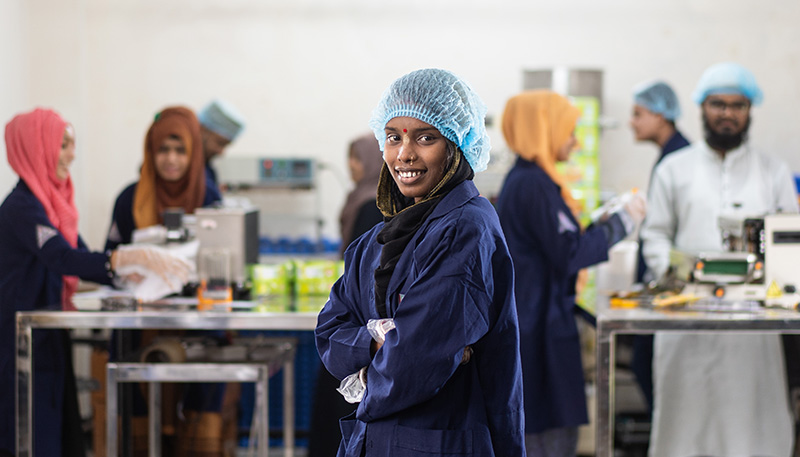
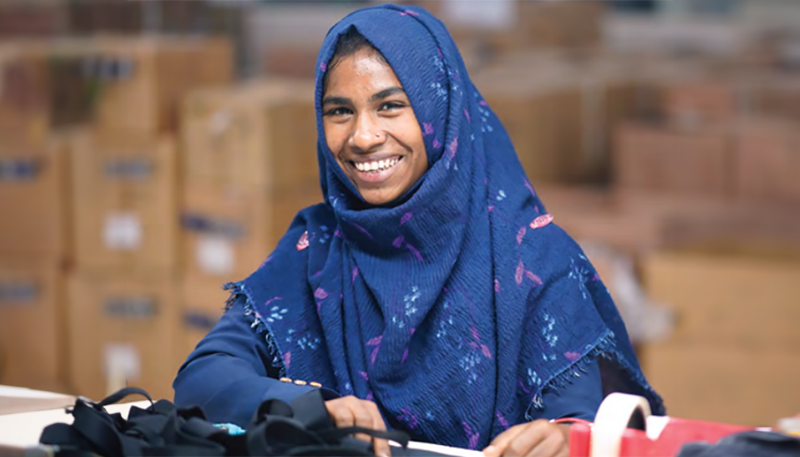
"It has never occurred to me that I can't do what I set my mind to do. I'm confident that with everyone's support and encouragement and God's blessings, I will make it one day."
- Shahana (Uttoron Graduate)
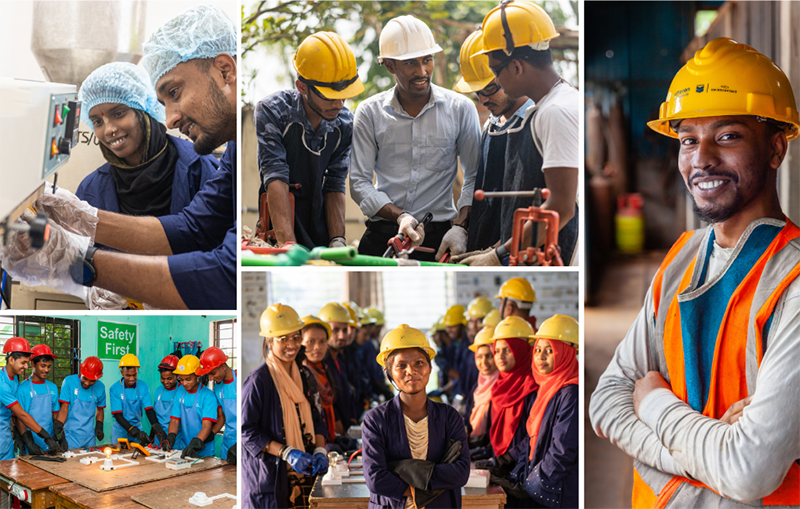
uddokta
Uddokta - empowering entrepreneurs - is a partnership between Chevron and International Development Enterprises (iDE) under BPI. The project seeks to amplify Chevron’s investments made in Bangladesh to improve the lives and livelihoods of rural communities through an increased focus on powering local entrepreneurs and building inclusive market systems that link smallholder producers to more rewarding opportunities.
As a result of improved access to goods and services delivered through enterprises supported by the project, Uddokta aims to trigger an increase in the incomes of over 2,700 VDO-affiliated households. It is also anticipated that project efforts will result in an increase in the annual revenues of 1,100 micro and small enterprises, and increased sales of quality inputs to smallholder farmers. Moreover, Uddokta facilitates access to finance for participating enterprises to establish, grow and operate their businesses. In summary, over 37,000 household members will be benefitted from augmented incomes as a result of improved access to goods and services triggered through systemic market changes catalyzed by Uddokta.
Uddokta has assessed the prevailing community scenario and training needs for potential micro, small and medium enterprises (MSMEs). Thus far, it has reached 1,100 Micro, Small & Medium Enterprises (MSME). In order to introduce new businesses and scale-up existing ones, seed funds have been provided to 1,100 MSMEs and several VDOs. The project has also facilitated linkages with different financial institutions for improved client eligibility, as a result of which over 200 MSMEs have received sizeable business startup and expansion loans from banks and microfinance institutes. Uddokta has also facilitated improved market dynamics by catalyzing access to quality inputs, services, and technologies from both public and private sector partners. Service agreements have been signed with market leaders like iSocial, Alim, and ATEC Australia, among others.
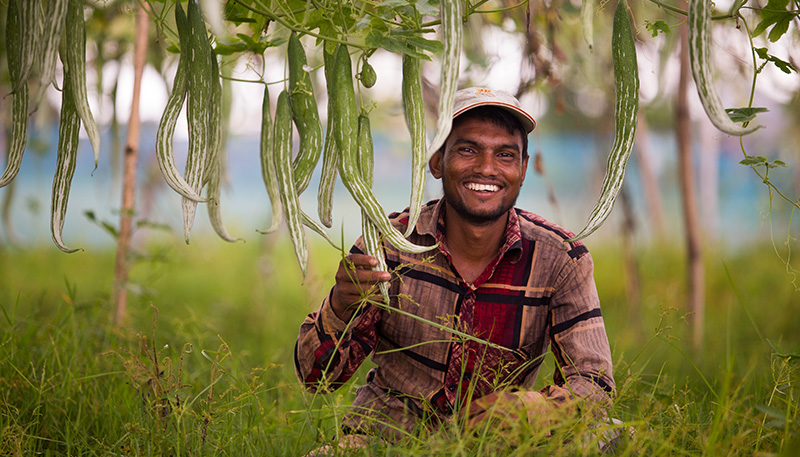
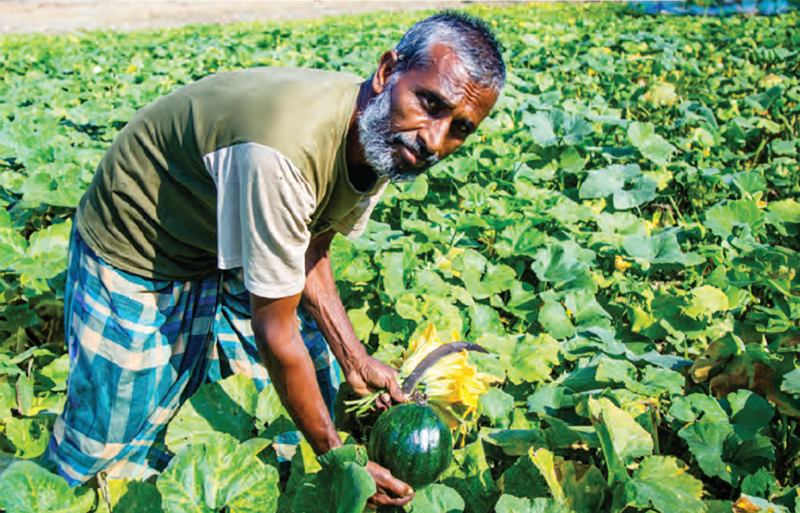
"I have never taken and advice from any person, not even from an Upazila agricultural officer before 2020, as I did not have access to that. Uddokta has taught me the possible way forwards for increasing my income and happiness."
- Zahir (Uddokta entrepreneur)
